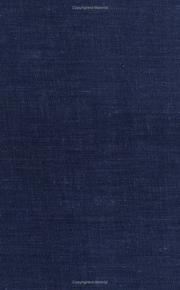Check nearby libraries
Buy this book

This book is about ways of understanding contingency and necessity in the world and how these ideas influenced the development of the mechanical philosophy in the seventeenth century. It examines the transformation of medieval ideas about God's relationship to the creation into seventeenth century ideas about matter and method as embodied in early articulations of the mechanical philosophy.
Medieval thinkers were primarily concerned with the theological problem of God's relationship to the world he created. They discussed questions about necessity and contingency as related to divine power. By the seventeenth century, the focus had shifted to natural philosophy and the extent and certitude of human knowledge. Underlying theological assumptions continued to be reflected in the epistemological and metaphysical orientations incorporated into different versions of the mechanical philosophy.
.
The differences between Pierre Gassendi's (1592-1655) and Rene Descartes' (1596-1650) versions of the mechanical philosophy directly reflected the differences in their theological presuppositions. Gassendi described a world utterly contingent on divine will.
This contingency expressed itself in his conviction that empirical methods are the only way to acquire knowledge about the natural world and that the matter of which all physical things are composed possess some properties that can be known only empirically. Descartes, on the contrary, described a world in which God had embedded necessary relations, some of which enable us to have a priori knowledge of substantial parts of the natural world. The capacity for a priori knowledge extends to the nature of matter which, Descartes claimed to demonstrate, possess only geometrical properties. Gassendi's views can be traced back to the ideas of the fourteenth century nominalists, while Descartes can be linked to Thomist tradition he imbibed at La Fleche.
Refracted through the prism of the mechanical philosophy, these theological conceptualizations of contingency and necessity in the world were mirrored in different styles of science that emerged in the second half of the seventeenth century.
Check nearby libraries
Buy this book

Subjects
Contingency (Philosophy), Free will and determinism, God, History, History of doctrines, Necessity (Philosophy), Philosophy, Philosophy of nature, Providence and government of God, Science, Will, Descartes, rene, 1596-1650, God, will, Science, philosophy, Mechanical philosophyTimes
17th centuryShowing 1 featured edition. View all 1 editions?
| Edition | Availability |
|---|---|
|
1
Divine will and the mechanical philosophy: Gassendi and Descartes on contingency and necessity in the created world
1994, Cambridge University Press
in English
0521461049 9780521461047
|
aaaa
Libraries near you:
WorldCat
|
Book Details
Edition Notes
Includes bibliographical references (p. 237-269) and index.
Classifications
The Physical Object
ID Numbers
Community Reviews (0)
Feedback?| July 14, 2024 | Edited by MARC Bot | import existing book |
| August 18, 2020 | Edited by ImportBot | import existing book |
| December 4, 2010 | Edited by Open Library Bot | Added subjects from MARC records. |
| April 28, 2010 | Edited by Open Library Bot | Linked existing covers to the work. |
| December 10, 2009 | Created by WorkBot | add works page |










